September 16, 2023 - Maria Lisa Polegatto
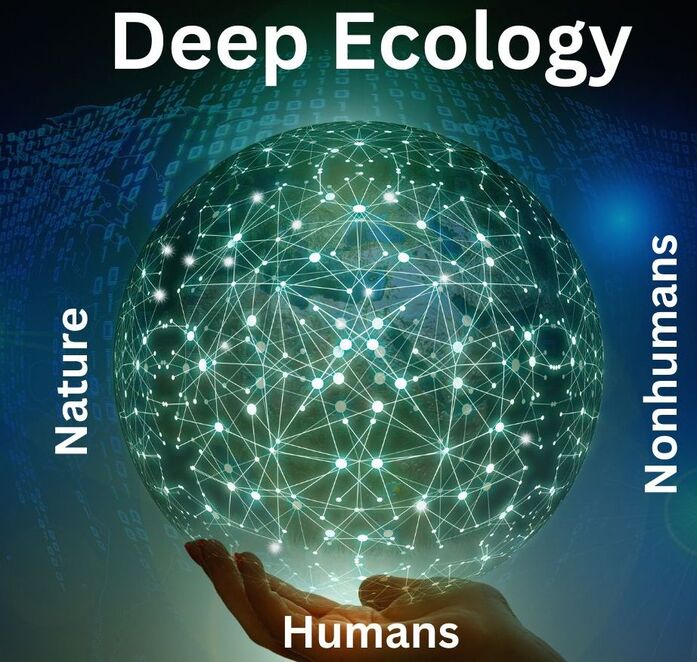 Design credit: Polegatto, M.L.
Design credit: Polegatto, M.L. Deep Ecology: A Philosophical View Of The Interconnectedness Of Humanity With Nature and Nonhumans
One need only hear news to see an increase in global issues. Due to environmental pressures and the need to reverse human’s superiority, Arne Naess, modelled a philosophical concept, “deep ecology”, in 1973. This concept exceeds ecological awareness to an integration of ecosystem importance and awareness of humanity’s dependence upon nature and its processes to transform human consciousness (Lange, 2023).
Deep ecology is a non-anthropocentric philosophy of the interconnectedness of humans, nonhumans, and nature and the increasing ecological degradation calling for readdressing human relationships with earth to adopt new “ways of being” (Nesterova, 2023) that benefit all live on earth. Even though deep ecology has different versions, all define a concept that:
- is grounded in relational ways of being,
- highlights the need for recognizing human and nonhuman nature as fundamentally mutual, and
- values more than human relations (Walsh et al, 2020).
Whales create more fish in the ocean, birds distribute nutrients between land and ocean, and animals provide natural fertilizer for nature to grow (Polegatto, 2020). The chain of links need reinforcing. Since nonhuman species freely provide a multitude of benefits to all ecosystems (Wang, 2013), humans need to coexist with nonhumans and nature to allow life sustaining forces they freely provide.
In 2022, Fiona Hurricane caused catastrophic damage to human development built by destroying nature and losses for humans in conveniences, economy, and wellbeing. This era is creating devastation outside usual geography. Nature continually proves humans are not in control of the earth. To change our relationship with nature and our view of sustainability, we need to be open to new:
- ways of being
- thinking, and
- acting (Walsh et al, 2020).
On a positive note, humanity is capable of positive actions, including ethical and transformational actions (Nesterova, 2023). Humanity can contribute to a better environment. We can not wait for others or businesses to do it for us. If everyone did small actions, it could have a substantial effect. Not all persons or companies are environmentally destructive, and humans need to explore and act responsibly
Instead of focusing solely on profits, businesses need to focus through a broader lens and assume responsibilities of degrowth based on four interconnects of social being:
on different levels and locations, guided with compassion, towards a society living harmoniously, ecologically sustainable and egalitarian (Nesterova, 2023).
- humans’ material transactions with nature,
- social relationships,
- social structures, and
- people’s inner being
on different levels and locations, guided with compassion, towards a society living harmoniously, ecologically sustainable and egalitarian (Nesterova, 2023).
Schumacher suggests humanity can live happier through possessing, retaining, and using less linking wellness to our limited earth (Zamora-Polo & Sánchez-Martín, 2019). Recycling items is an option instead of producing new products.
Schumacher suggests humanity can live happier through possessing, retaining, and using less linking wellness to our limited earth (Zamora-Polo & Sánchez-Martín, 2019). Recycling items is an option instead of producing new products.
World issues need deep conversations (Nesterova, 2023) despite conflict; however, the "truth" humans possess (Walsh et al, 2020) can be based more on perceptions than truths. Every person can bring a different perspective to the table which is often made of natural resources. Indigenous persons, also known as "earth’s guardians" (Lange, 2023), follow a way of being established on kinship with nature (Walsh et al, 2020).
While all knowledge is subject to review (Nesterova, 2023) we must be open to exploring the integration of dualism of inner selves with the outer collective dimensions of sustainability (Walsh et al, 2020). Humanity must learn to coexist to survive. Humans are not guaranteed their continuance (Lange, 2023), while nature has existed through past earth extinctions.
Social justice believes humanity’s vital needs must be fulfilled, with everyone having access to the same opportunities, adding consideration of nonhuman beings, including animals, trees, and waterways, which are seen as beings having a right to self-realization. Earth should be viewed as a complex collection of instrumental living processes with political standing (Walsh et al, 2020). Humanity needs to use natural resources for vital needs and wellbeing (Nesterova, 2023) instead of mere wants. Humanity is not alone on this earth. There is need for integrating deep ecology with social issues and a call to action for sustainability and a co-development of relational ways of being, knowing, and acting (Walsh et al, 2020).
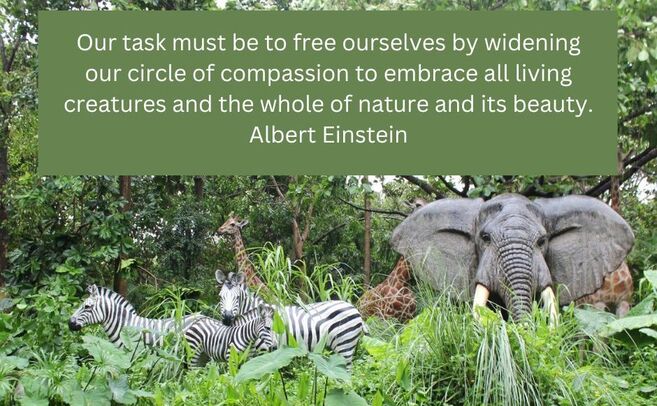 Design credit: Polegatto, M.L. Quote credit: A-Z Quotes
Design credit: Polegatto, M.L. Quote credit: A-Z Quotes Humanity needs to step up and be thankful for nature and nonhumans instead of degrading nature, such as reducing pollution, increasing mangroves to prevent coastal flooding, and increasing sea grass to sequester carbon dioxide (Polegatto, 2020). Step up and stand up for the unity of humanity with nature and nonhumans for future generations. Degrowth, reduce, reuse, and recycle before earth is not viable for humanity to live.
References:
Confer, S. (2021, November 5). 80 of the best quotes on Sustainability. Nomomente Institute.
https://www.nomomente.org/post/best-quotes-on-sustainability-eco-friendly-lifestyle
Lange, E. A. (2023b, March 28). Waves of environmentalism, development, and backlash: 3 :
Transformative Sustainability Education. (pp. 51–113). Taylor & Francis.
https://www.taylorfrancis.com/chapters/mono/10.4324/9781003159643-3/waves-
environmentalism-development-backlash-elizabeth-lange
Lange, E. A. (2023b, March 28). How did we get here?: 2 : Transformative sustainability education: E. (pp.
13-49). Taylor & Francis. https://www.taylorfrancis.com/chapters/mono/10.4324/9781003159643-
, 2/get-elizabeth-lange
Nesterova, I. (2023b, March 30). Responsibilities towards places in a degrowth society: How firms can become
more responsible via embracing Deep Ecology. Aalto University’s research portal.
https://research.aalto.fi/en/publications/responsibilities-towards-places-in-a-degrowth-society-how-
firms-c
Polegatto, M. L. (2020). Deep dive into the ocean ecosystem with the Giants.
Adobe Express. http://bit.ly/deepdivewithwhales
Polegatto, M. L. (2023). Blog. MARIA LISA POLEGATTO.
https://www.marialisapolegatto.com/blog-by-maria-lisa-polegatto
Top 24 deep ecology quotes: A-Z quotes. (n.d.).
https://www.azquotes.com/quotes/topics/deep-ecology.html
Wang, Y. (2013). Marine biology, old but unknown. International Journal of Marine Science,
3(1), International Journal of Marine Science, 2013, Vol.3(1).
Walsh, Z., Bohme, J., & Wamsler, C. (2020, February 28). Towards a relational paradigm
in sustainability research, practice, and education - ambio. SpringerLink.
https://link.springer.com/article/10.1007/s13280-020-01322-y#citeas
Zamora-Polo, F., & Sánchez-Martín, J. (2019, August 5). Teaching for a better world. sustainability
and sustainable development goals in the construction of a change-maker University.
MDPI. https://www.mdpi.com/2071-1050/11/15/4224
https://www.nomomente.org/post/best-quotes-on-sustainability-eco-friendly-lifestyle
Lange, E. A. (2023b, March 28). Waves of environmentalism, development, and backlash: 3 :
Transformative Sustainability Education. (pp. 51–113). Taylor & Francis.
https://www.taylorfrancis.com/chapters/mono/10.4324/9781003159643-3/waves-
environmentalism-development-backlash-elizabeth-lange
Lange, E. A. (2023b, March 28). How did we get here?: 2 : Transformative sustainability education: E. (pp.
13-49). Taylor & Francis. https://www.taylorfrancis.com/chapters/mono/10.4324/9781003159643-
, 2/get-elizabeth-lange
Nesterova, I. (2023b, March 30). Responsibilities towards places in a degrowth society: How firms can become
more responsible via embracing Deep Ecology. Aalto University’s research portal.
https://research.aalto.fi/en/publications/responsibilities-towards-places-in-a-degrowth-society-how-
firms-c
Polegatto, M. L. (2020). Deep dive into the ocean ecosystem with the Giants.
Adobe Express. http://bit.ly/deepdivewithwhales
Polegatto, M. L. (2023). Blog. MARIA LISA POLEGATTO.
https://www.marialisapolegatto.com/blog-by-maria-lisa-polegatto
Top 24 deep ecology quotes: A-Z quotes. (n.d.).
https://www.azquotes.com/quotes/topics/deep-ecology.html
Wang, Y. (2013). Marine biology, old but unknown. International Journal of Marine Science,
3(1), International Journal of Marine Science, 2013, Vol.3(1).
Walsh, Z., Bohme, J., & Wamsler, C. (2020, February 28). Towards a relational paradigm
in sustainability research, practice, and education - ambio. SpringerLink.
https://link.springer.com/article/10.1007/s13280-020-01322-y#citeas
Zamora-Polo, F., & Sánchez-Martín, J. (2019, August 5). Teaching for a better world. sustainability
and sustainable development goals in the construction of a change-maker University.
MDPI. https://www.mdpi.com/2071-1050/11/15/4224
Further Resources:
(click to go to links)
Deep Ecology — Principles, Definition and Main Criticisms
Deep Ecology | Saving Earth
Environment (National Geographic)
Nature-based climate solutions
What Is Deep Ecology? Philosophy, Principles, and Criticism
| | |
| | |
| | |
| | |
| | |
| | |
#sustainability #sustainableliving #ecosystem #ecology #environment #environmentaleducation #nature #naturelover #nonhuman #speciesatrisk #academictwitter #education #ocean #recycle #cleanup #interconnectedness #humanity #getoutside #research #animals
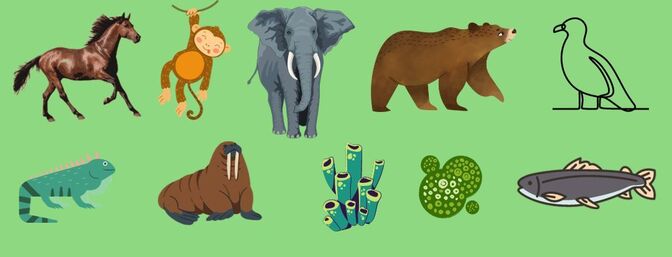
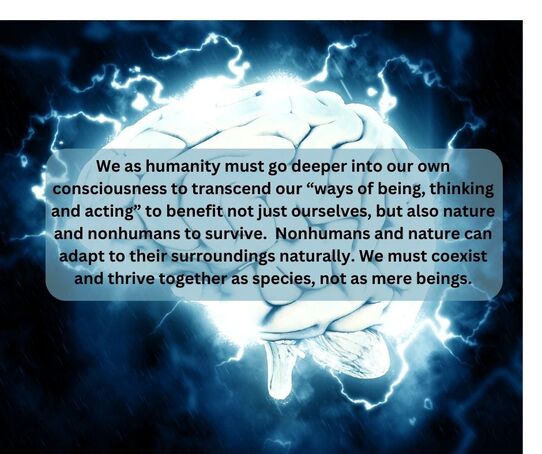
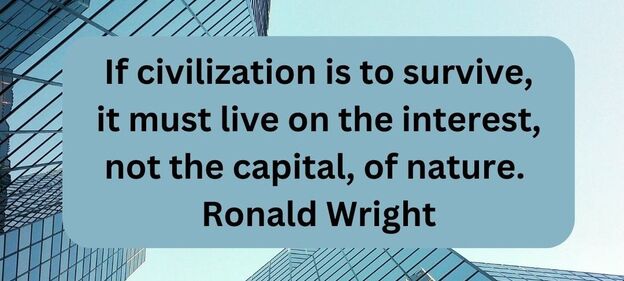

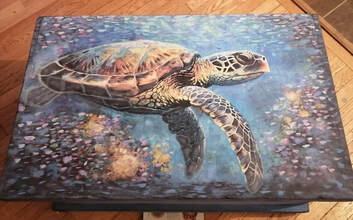
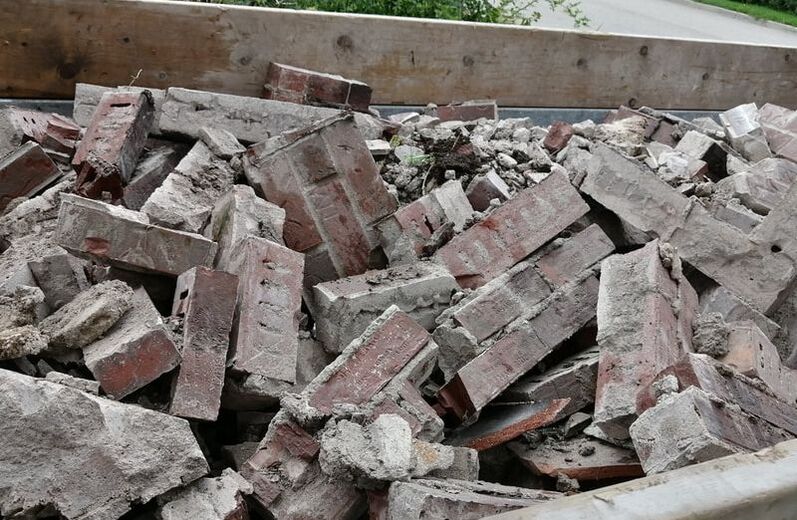
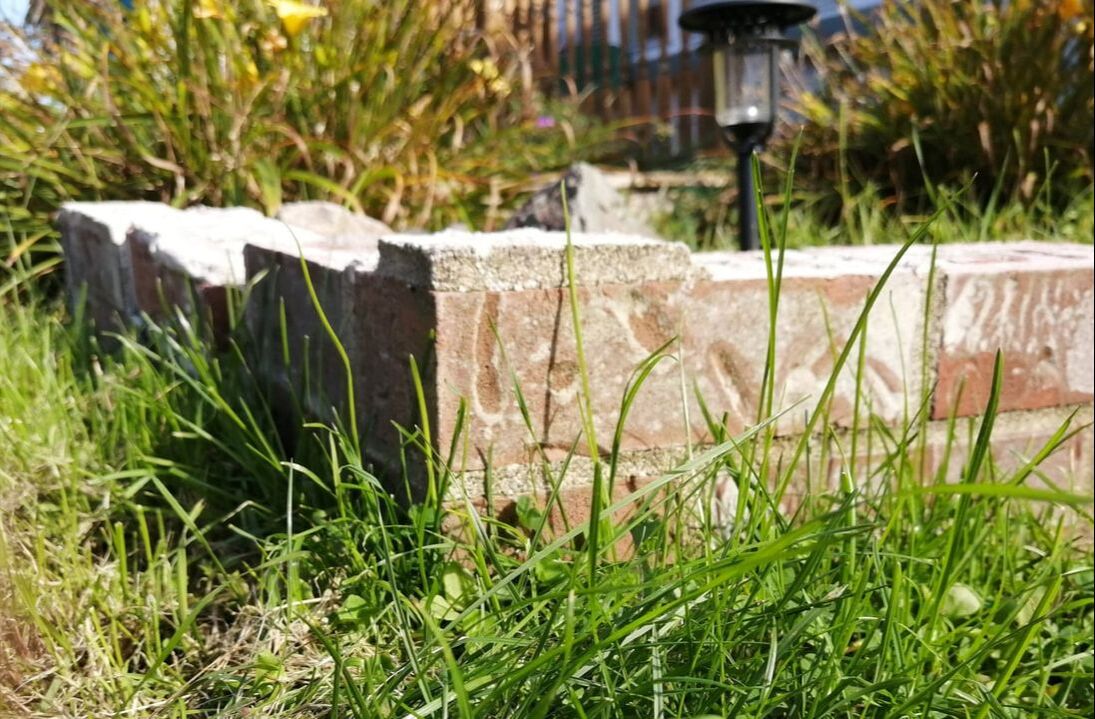
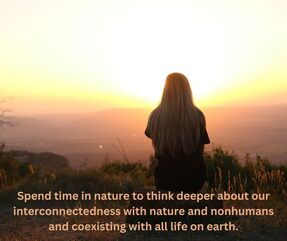

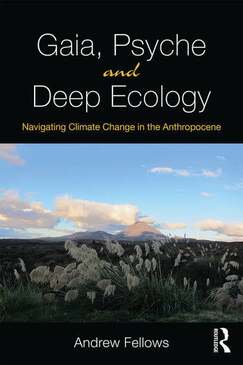
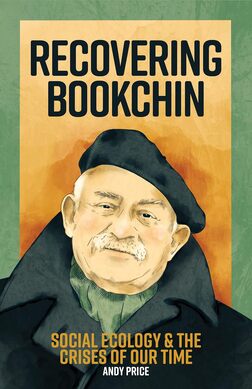
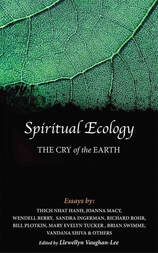
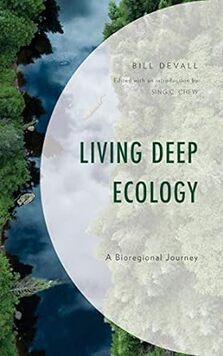
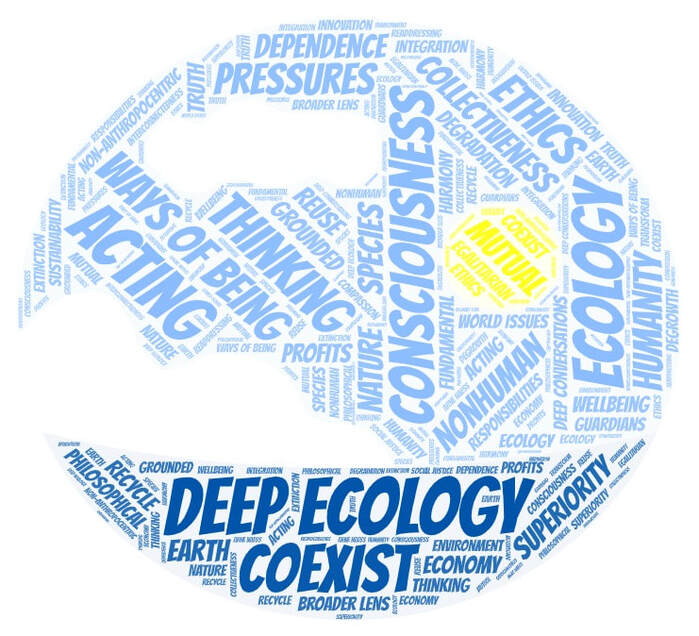
 RSS Feed
RSS Feed